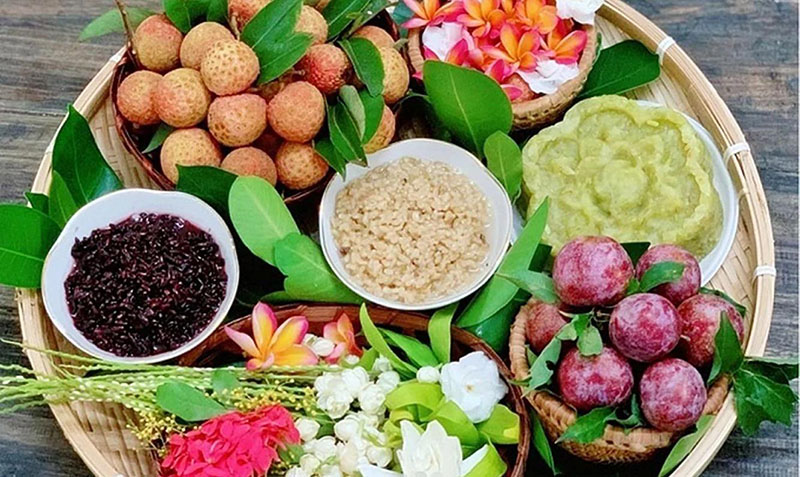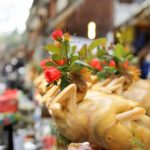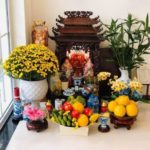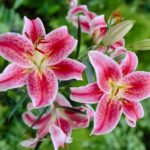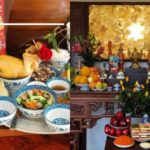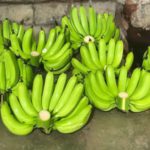Doan Ngọ Festival is a very special holiday that is highly regarded. Doan Ngọ Festival is one of the major festivals in our country, which takes place on the 5th day of the 5th lunar month, also known as Doan Yang Festival or Bug-Killing Festival. According to ancient beliefs, on this day, worms, bugs, and parasites inside the digestive system develop and pose a threat to health, so they need to be eliminated.
This is considered one of the traditional holidays with a rich cultural significance. It is not only present in Vietnam or China but also in North Korea and South Korea. That is why Doan Ngọ Festival is actually a traditional Asian holiday closely associated with the concept of the cycle of weather in the year.
In addition, in Vietnam, there is a legend passed down about Doan Ngọ Festival. In the past, there was an old man named Doi Truan who helped farmers eliminate pests in the crop by setting up a simple offering that included burnt cakes and fruits, then he exercised in front of his house and in the blink of an eye, the pests were gone. Later, he told the people to follow what he had instructed, and the pests would be gone. To commemorate this, people set Doan Ngọ Festival as the “pest-killing festival” and this is also an occasion to worship the ancestors that has been passed down to this day. In addition, calling Doan Ngọ Festival the “pest-killing festival” is because during the transitional season and epidemic outbreak, pests are likely to occur. The ritual is a way to eliminate “pests”, expel all diseases, etc.
Aside from pest control, people also believe that offering the ancestors and offerings on this day is to pray for a bountiful harvest.
In 2024, Doan Ngọ Festival on the 5th day of the 5th lunar month will fall on Monday, June 10, 2024.
References:
2. The typical Doan Ngọ Festival offerings in the three regions
According to tradition, the Doan Ngọ Festival offering to ancestors on the Doan Ngọ Festival day includes fruits such as vải and mận, sticky rice wine, gio cake (the tro cake and the fruit tro cake)… In addition to the necessary offerings, each region has additional items such as:
North:
– Sticky rice wine, which is a special dish of the day. The ancients believed that sticky rice wine could destroy pests in the body, preventing them from harming the human body;
– The “Com ruou nep cai hoa vàng” – Sticky rice wine is soaked in a traditional way and is square in shape. It is good to have “Com ruou nep cam (sticky rice wine with orange color)” at some places;
– Banh tro is a type of cake made from soaked glutinous rice wrapped in banana leaves. This is an easy to eat cake, easy to digest, and it tastes great when eaten with sugar or honey. According to our ancestors, when glutinous rice is boiled in leaves, it absorbs the characteristics of plants, helping to cool down and treat diseases in the body.
Central:
In addition to the required offerings, there are some other dishes in Central Vietnam, such as:
– Rice wine. Rice wine in the Central is fermented in a traditional way and has small square-shaped pieces, soft and tender from the inside out;
– Duck meat. The Central region prefers duck meat because people believe that duck meat has the effect of cooling and nourishing the body, blood, and helps digestion. Furthermore, this is also the time when duck meat is delicious and fatty;
– “Che ke” is not popular in all provinces in the Central, but it is very popular in the Doan Ngọ offering in Quang Nam. Che ke is made from ke seeds until soft, sweet, and fragrant when eaten.
South:
In the South, in addition to the usual offerings, there are many other dishes such as:
– Rice wine. Still rice wine, but in the South, sticky rice wine is folded into round pieces and added sugar syrup, similar to Che in the North;
– “Banh ú Ba Trạng” is a similar cake to banh tro but larger, made from soaked glutinous rice with added fillings, then boiled or steamed. “Banh ú Ba Trạng” can be wrapped in lotus leaves, banana leaves, etc., and each type of leaf will give the cake a different flavor;
– “Che troi nuoc” is large, round balls made from white glutinous rice flour with mung bean filling. In the South, they are eaten with sugar and coconut milk with the intention of being effective in killing pests.
In the South, families tend to choose beautiful, plentiful fabric to display on the ancestral altar.
3. Ancestral prayer on Doan Ngọ Festival
People burn 9 candles, light 9 incense sticks, kneel 9 times, and recite the prayer:
“I sincerely bow down and invite my parents, grandparents, ancestors, and deceased relatives to come together on this special day, which is the 5th day of the 5th lunar month, Doan Ngọ Festival in the year (current time) at noon. We prepare offerings, gold, and incense to respectfully invite our parents, grandparents, and ancestors to come and enjoy, witness, and bless our sincere hearts.
“I pray to my parents, grandparents, and ancestors on the occasion of Doan Ngọ Festival, to help bring fortune to us as you did in the past. I pray that you bless the land with a bountiful harvest, protect the spirits of our ancestors in heaven, and help us drive away evil spirits and diseases.”
“We prepare sincere offerings and respectfully invite our parents, grandparents, and ancestors to witness our gratitude and sincerity.
“We express our utmost respect and sincere worship to our parents, grandparents, and ancestors. We offer this prayer on Doan Ngọ Festival.”
“We are grateful, and express our deep gratitude.”
“We are grateful, and express our deep gratitude.”
“We are grateful, and express our deep gratitude.”
 Ancestral prayer on Doan Ngọ Festival
Ancestral prayer on Doan Ngọ Festival
4. Outdoor Ancestral Prayer on Doan Ngọ Festival
Light 9 candles, 9 incense sticks, and recite the prayer:
“Light candles and recite the prayer. Start by lighting the candles. The bright light shines. The mind and body are calm. Let go of worries and troubles. The divine light shines. The gods witness. Light incense and recite the prayer. The fragrance rises to the heavens. The noble energy reaches the sky. The gods join together. Observe the moon palace. The gods bless. The gods gather. The bodies and minds are purified. Respect and follow the ritual. Declare the deity.”
Kneel and bow 9 times. Recite the prayer:
“I sincerely invite the heavenly gods, the ten directions, and all the Buddhas and Deities to come and witness our offering.
“I invite the Earth Gods and Thần Vị guardians of this land. I invite the Kitchen God and the spirits of the five directions, Long Mach, and Thai Than.
“I invite the three deities of the Pure Land, the Original Ruler of Heaven, the Virtuous Ruler of Heaven, and the Precious Treasures Ruler of Heaven. I invite the astral deities of Nine Heavens, the Supreme God of the Thanh Quang Lao Quan, and the Mysterious Heaven.
“I invite the supreme heavenly generals, the heavenly general of the upper boundaries, the heavenly general of the middle boundaries, and the heavenly general of the lower boundaries. I invite the Four Virtuous Holy Mothers. I invite the Great Eastern Sea Dragon King. I invite the Great Holy Mountain of Tam Vien, Hoang. I invite the national ruler, the Great King, and the Bach Ma Linh Lang with divine compassion, and all the Holy Kingdoms. I invite the mountain gods, the dragon gods, the earth gods, the earth workers, the land spirits, and all the deities and immortals in the three realms to come and witness the ritual.
“Today is the Doan Ngọ Festival, in the midst of heaven and earth, we sincerely prepare offerings, gold, and incense to respectfully offer them to Ngọc Hoàng Đại Đế and all the deities. We ask for your guidance in bringing blessings to the world, freeing it from all calamities, eliminating all pests, preventing harm to this world, and ensuring a bountiful harvest. We pray that our parents, grandparents, and ancestors receive your special blessings and ascend to heaven to receive great blessings.
“We pray to the heavenly gods, Ngọc Hoàng Đại Đế, and all the deities to eradicate demons and evil spirits from the three realms and punish those who commit evil deeds and suppress unjust power, eradicate parasites and demons that harm the harvest season.
“We sincerely pray that blessings come, that good fortune arrives, that virtues thrive, and that all are prosperous in wealth. May everything go well, may all aspirations be fulfilled.”
“We pay our deepest respect (3 times).”
After finishing the prayer, kneel 9 times.
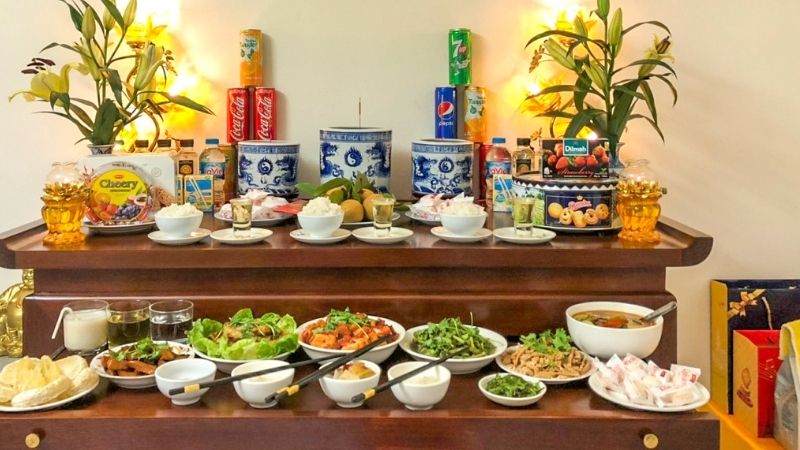 Outdoor Ancestral Prayer on Doan Ngọ Festival
Outdoor Ancestral Prayer on Doan Ngọ Festival
5. Ancestral Enshrinement Prayer
Namo Amitabha Buddha!
Namo Amitabha Buddha!
Namo Amitabha Buddha!
I respectfully bow to the Heavenly Ruler, the Ten Directions Buddhas, and all the Buddhas in the Ten Directions.
I respectfully bow to the Heavenly Emperor, the Eastern Sky Ruler, the Southern Sky Ruler, the Western Sky Ruler, and the Northern Sky Ruler. I respectfully bow to the Heavenly Emperor of the Nine Skies, the Dragon Ruler of the Upper Sky, and the Heavenly Ruler. I respectfully bow to the Three Primordial Ancestors, the Original Ruler of Heaven, the Ethical Ruler of Heaven, and the Sacred Treasure Ruler of Heaven. I respectfully bow to the Supreme Heavenly General of Nine Heavens, the Supreme General of Thanh Quang Lao Quan, and the Mysterious Heaven. I respectfully bow to the Four Venerable Mothers, the Great Eastern Sea Dragon King, the Honored Holy Mountain of Tan Vien.”
I respectfully bow to the national ruler, the Great King who brings divine compassion, and all the Holy Kingdoms. I respectfully bow to the mountain gods, dragon gods, earth gods, earth workers, land spirits, and all the deities and immortals in the three realms who witness this ritual.
Today is the day of Doan Ngọ Festival, in the presence of the heavens and the earth. I sincerely prepare offerings, gold, incense, and all the ritual objects to respectfully ask for your presence before the altar.
I sincerely invite the divine beings who govern this region.
I sincerely ask for your mercy and presence to witness our devotion.
Protect our family, bring peace to every individual, bring prosperity during the eight seasons and ensure prosperity. Help us in the Tao to open up our knowledge. Let all our requests be fulfilled, let every prayer be sincere.
Guide our sincere hearts and bear witness.
Be careful!
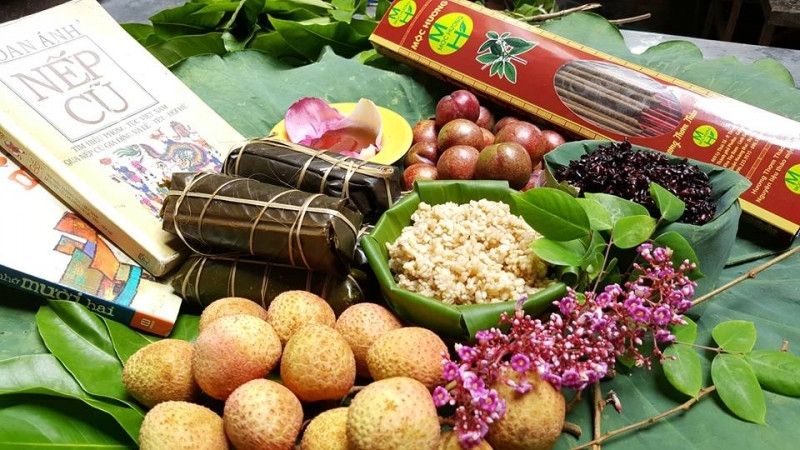 Ancestral Enshrinement Prayer
Ancestral Enshrinement Prayer
6. Prayer for Ngọc Hoàng Đại Đế and Deities
Light 9 candles, 9 incense sticks, and recite the prayer:
“Light candles and recite the prayer. Start by lighting the candles. The bright light shines. The mind and body are calm. Let go of worries and troubles. The divine light shines. The gods witness. Light incense and recite the prayer. The fragrance rises to the heavens. The noble energy reaches the sky. The gods join together. Observe the moon palace. The gods bless. The gods gather. The bodies and minds are purified. Respect and follow the ritual. Declare the deity.”
Kneel and bow 9 times. Recite the prayer:
“I sincerely invite the Heavenly Ruler, the Eastern Sky Ruler, the Southern Sky Ruler, the Western Sky Ruler, and the Northern Sky Ruler. I respectfully invite the Great Ghost King, the King of Exorcism, and the King of Teaching the Dharma. I respectfully invite the Three Primordial Ancestors, the Original Ruler of Heaven, the Ethical Ruler of Heaven, and the Sacred Treasure Ruler of Heaven. I respectfully invite the Supreme Heavenly General, the Celestial General of Heaven’s Heaven, the Celestial General of Heaven’s Army, and the Celestial General of Heaven’s Cavalry. I respectfully invite the Four Virtuous Holy Mothers. I respectfully invite the Three Ocean Dragon Kings. I respectfully invite the venerable Sanming Shrine, the Tan Vien Mountain Deity. I respectfully invite the national leader, the venerable Spirit Wood Lord, and all the holy spirits. I respectfully invite the Mountain Spirit, the Dragon Spirit, the Earth Spirit, the Earth Worker, the Lees Spirit, and all the spirits. I respectfully invite all the deities in the three realms who witness this ritual.”
“Today is Doan Ngọ Festival, in the presence of heaven and earth, we sincerely prepare offerings, gold, and incense to respectfully offer them to Ngọc Hoàng Đại Đế and all the deities. We pray that Ngọc Hoàng Đại Đế and all the deities eradicate demons and evil spirits from the three realms, punish those who commit evil deeds and suppress unjust power, and eradicate pests and demons that harm the harvest season.”
“We sincerely pray for blessings and good fortune to come, for all aspirations to be fulfilled.”
We pay our deepest respect—(3 times).
After finishing the prayer, kneel 9 times.
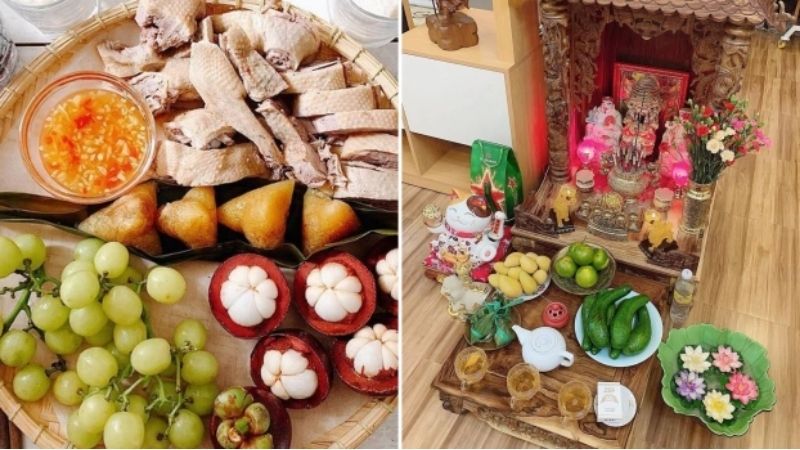 Prayer for Ngọc Hoàng Đại Đế and Deities
Prayer for Ngọc Hoàng Đại Đế and Deities
7. Ancestral Worship Prayer
Namo Amitabha Buddha!
Namo Amitabha Buddha!
Namo Amitabha Buddha!
I sincerely bow to the Heavenly Ruler, the Ten Directions Buddhas, and all the Buddhas in the Ten Directions.
I respectfully bow to the Heavenly Emperor, the Eastern Sky Ruler, the Southern Sky Ruler, the Western Sky Ruler, and the Northern Sky Ruler. I respectfully bow to the Earth Gods, the Thần Địa Guardians of this land, and the guardian spirits of five directions.
I respectfully bow to the ancestral spirits Cao Tăng Tổ khảo, and Cao Tăng Tổ tỷ.
Thanks to my ancestors, ancestors, relatives from our family: …………………………………………….
Living in: ……………………………………………. and all our relatives.
With a sincere heart, we prepare offerings, gold, incense, flowers, lamps, and other offerings, and arrange them in front of the altar.
We respectfully invite the guardian deities of this region, and we bow before the altar to witness our sincerity.
We respectfully invite our ancestors, relatives, and all the spirits to receive our gratitude and sincerity.
We respectfully invite the ancestors of our family, the venerable Spirit Wood Lord, and all the holy spirits. We bow and thank our ancestors.
After burning the offering, kneel 9 times.
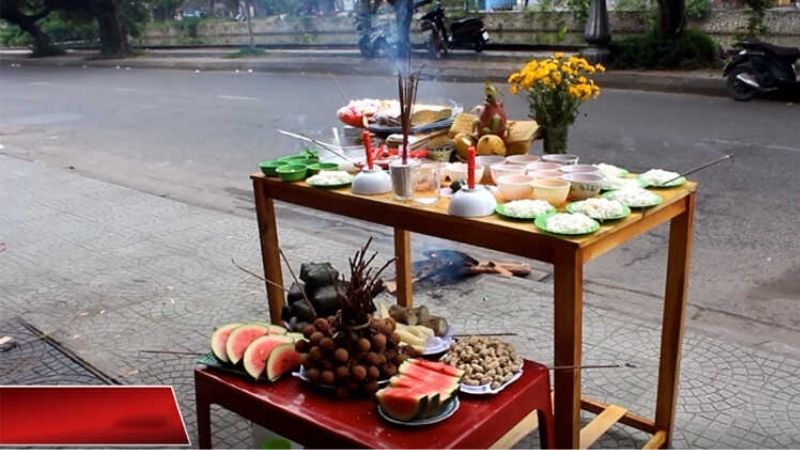 Ancestral Worship Prayer
Ancestral Worship Prayer
8. Things to note when worshiping on Doan Ngọ Festival
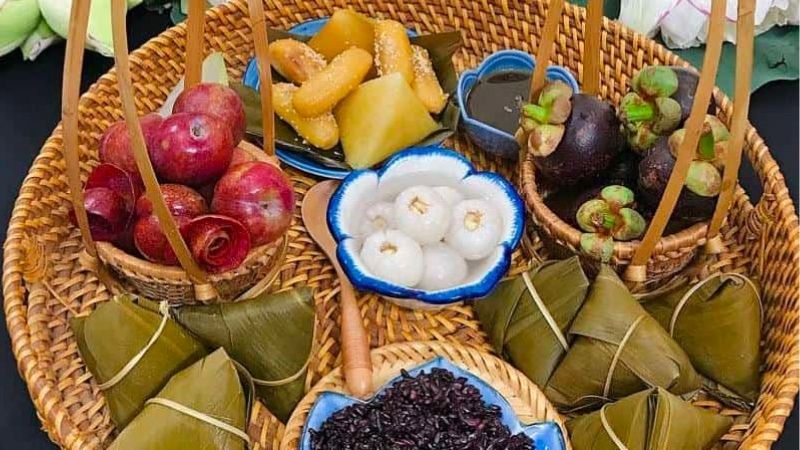 Things to note when worshiping on Doan Ngọ Festival
Things to note when worshiping on Doan Ngọ Festival
9. Frequently asked questions about worshiping on Doan Ngọ Festival
What is the auspicious time to worship on Doan Ngọ Festival?
Doan Ngọ Festival on the 5th day of the 5th lunar month is the day of the At Hoi year. The most auspicious time to worship is at the hour of “Ngọ” (11 AM – 1 PM). This is considered the best and most accurate time. However, if families cannot arrange their time, they can offer their worship from 7 AM – 9 AM, which are also two hoàng đạo hours, suitable for conducting spiritual rituals.
Choosing hen for incense lighting. When to choose a rooster and when to choose a hen, many people still don’t know.
In conclusion, the ritual of lighting incense with roosters and hens in Vietnamese culture holds immense symbolic significance. It is a way of communicating with the spiritual realm, seeking blessings, and honoring ancestors. This captivating tradition adds depth and charm to Vietnam’s rich cultural heritage.
























